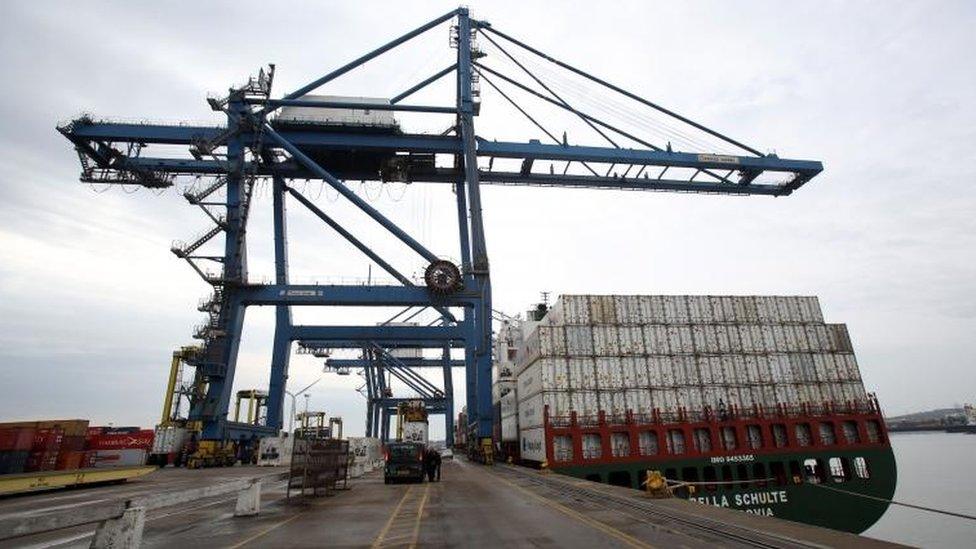Reality Check: Is the fall in the pound boosting exports?
- Published

In the build-up to and aftermath of the EU referendum, in June 2016, the pound fell by an average of 20% against other currencies.
Companies selling their products abroad were expected to be the winners of this depreciation because their goods would become cheaper and more attractive to foreign buyers.
So has there been a boost in exports driven by the weak pound?
The Office for National Statistics, external (ONS) says yes.
It found the growth in the amount of physical goods being exported by the UK manufacturing sector rose sharply after the referendum, with growth hitting a peak of 9.7% in March 2017.
Of course, exporters can't react immediately to currency fluctuations, so you would expect to see a lag effect.
The ONS statistics show businesses are not only selling more abroad - partly, but not solely by dropping prices - but they are also making more money from each product they sell abroad, by cutting prices by less than the drop in sterling and taking extra profit when converting the price paid abroad back into pounds.
How does the ONS know this?
The line shows the year-on-year increase in the volume of export sales (ie the number of physical goods).
The increase in sales has been calculated by holding prices constant.
In other words, it shows how many extra units are getting out of UK factory gates had sterling's value not changed.
This means, according to the ONS's analysis, the weaker pound has boosted export competitiveness.
But despite rising exports and profits, something else is going on.
The UK's trade deficit - that's the difference between what we import and export - still persists . The gap is now £2.9bn - ie we spend £2.9bn more on imports than we make by selling goods and services abroad.
That's because imports are also rising and they're rising faster than exports.
This may seem odd because the fall in the pound should have made imports more expensive.
Samuel Tombs, chief UK economist at Pantheon Macroeconomics, says UK imports are continuing to rise because companies have limited options.
"As a household or a firm you have to take the price hit as there's little room for substitution," he says. "Clothing, for example, relies heavily on imports."
When it comes to manufacturing, many businesses rely on imports for components, such as the car industry. Once assembled in the UK, these products are then exported abroad.
This means that the competitiveness boost the falling pound gives to exporters could be partially, or even wholly, offset by higher import prices.
Whether this trend of faster growth in exports can be sustained will probably rely more on the outcome of Brexit negotiations than any further fluctuations in the currency markets.
Alan Winters, director of the UK Trade Policy Observatory at the University of Sussex, says future trade performance will ultimately come down to business confidence.
"The uncertainty over Brexit may slow down firms' ability to adjust to the currency environment," he says.
"If the future is uncertain, the returns to making an adjustment are less clear and so people tend to postpone doing so."

